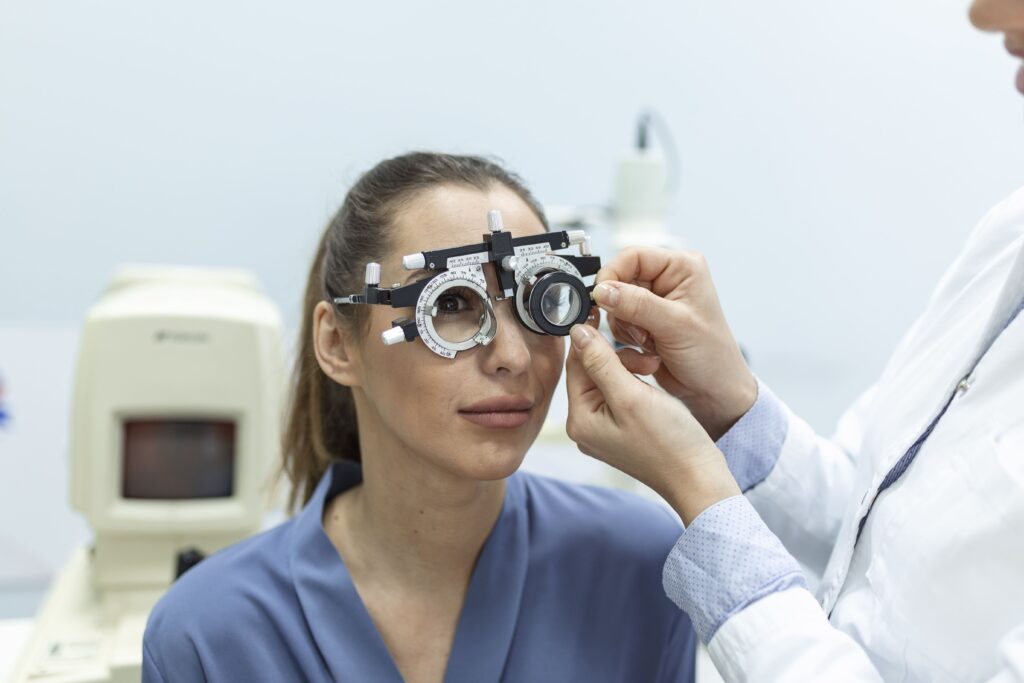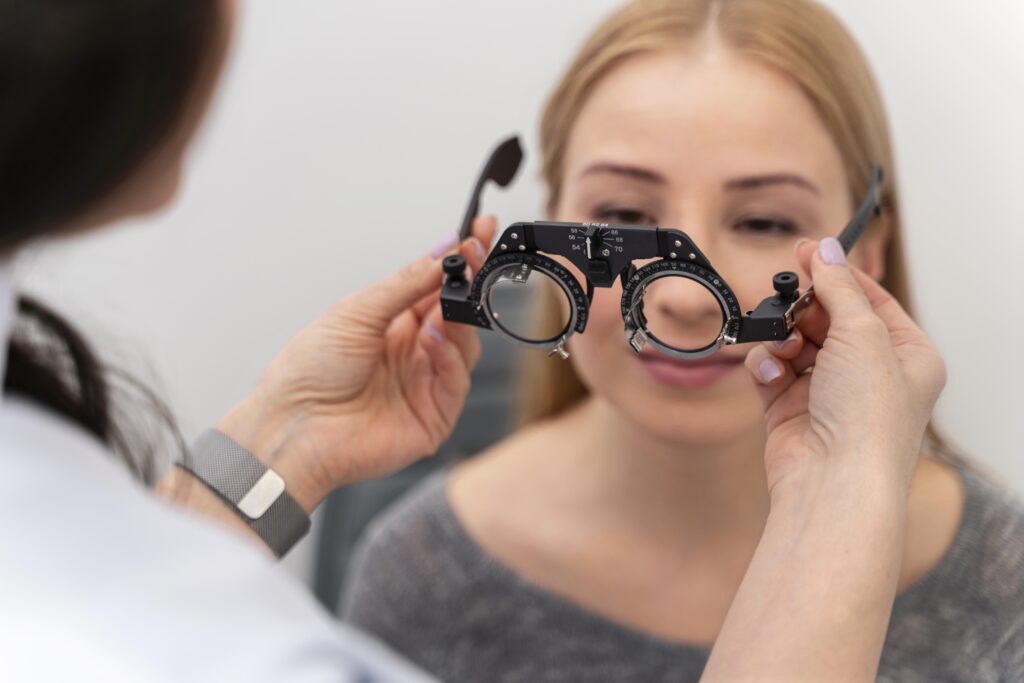A retinal ophthalmologist is a medical expert who specializes in diagnosing and managing conditions that affect the retina of the eye. In most cases, they typically do not perform routine eye exams or prescribe eyeglasses or contact lenses.
Retinal ophthalmologists help patients manage eye health, particularly for those who are at risk of retina conditions. Here are some ways a retinal ophthalmologist, or vitreo-retinal surgeon, can help you manage your eye health:
Detection and Diagnosis of Retina Conditions
A retinal ophthalmologist can detect and diagnose a range of retina conditions, including:
- Age-Related Macular Degeneration (AMD): This affects your central vision and can hinder activities like driving and reading. There are two types: Dry AMD, where the macula tissue thins and loses cells vital for vision, and Wet AMD, where abnormal blood vessels leak fluid into the macula, requiring emergency care.
- Diabetic Retinopathy: Diabetes can damage blood vessels, leading to blurry, distorted vision and potential blindness. Treatments for this condition include laser photocoagulation, vitrectomy, and cryotherapy.
- Macular Pucker: This condition occurs when the macula, the central part of the retina, wrinkles or swells, causing blurry vision or distortion.
- Macular Hole: A small break in the macula that often leads to blurry and distorted central vision.
- Posterior Vitreous Detachment (PVD): A condition where the vitreous gel separates from the retina. Symptoms may include floaters or flashes; if not treated, it can lead to a retinal tear or detachment.
Retinal Condition Treatment
Once a retinal condition has been diagnosed, a retinal ophthalmologist can give the most appropriate and effective treatment. For example, they can perform retina eye surgery to repair a torn retina or prescribe medication for retinal diseases like diabetic retinopathy. Center For Sight SW FL also offers proven treatments, such as:
- Laser Photocoagulation: This is a standard treatment for diabetic retinopathy where laser beams are directed at the affected retina. The laser heats the abnormal blood vessels that cause the condition, leading to their shrinkage. With a 90% success rate, it helps prevent further vision loss by sealing off leaking blood vessels, slowing the growth of new ones, and preventing retinal swelling.
- Vitrectomy: Also demonstrating an impressive 90% success rate, vitrectomy surgery is another retinal tear treatment option, particularly for severe retinal conditions such as retinal detachment or macular hole. In this surgical procedure, the vitreous gel pulling on the retina is removed from the eye and replaced with a salt solution. This relieves traction on the retina, allowing it to return to its normal position.
Management of Ongoing Retinal Conditions
Retinal ophthalmologists monitor the progress of a condition, adjust treatments as needed, and provide advice on how to manage symptoms and prevent further damage to the retina. They may also draft a management plan for each patient based on their diagnosis, risk factors, symptoms, and preferences. A management plan is a document that outlines the goals, strategies, and expected outcomes of the care process. It also specifies the frequency and type of follow-up visits, tests, and treatments, as well as the roles and responsibilities of the retinal patient and the eye care team.

Expert Eye Health Guidance
A retinal ophthalmologist can provide professional advice on maintaining good eye health, particularly for those with a higher risk of developing retina conditions. This can involve advising on how to manage symptoms and prevent further damage to the retina, such as using special glasses, magnifiers, or devices to enhance vision, avoiding smoking, eating a healthy diet, exercising regularly, and following up with regular eye exams. A yearly eye exam allows your eye doctor to monitor your vision and eye health over the long-term and can help detect signs of medical conditions, such as diabetes and high blood pressure.
Emergency Care for Retinal Conditions
A retinal ophthalmologist can provide urgent, specialized care in emergencies like sudden vision loss or retinal detachment. They can quickly diagnose the issue and perform emergency retina eye surgery if needed, significantly improving the chances of preserving vision. Read more from the Center For Sight SW FL Physicians on spotting and treating an eye emergency. Book your first retinal appointment with our dedicated team today!
**Please note that the suggestions provided in this blog are for general informational purposes only and may not be suitable for your specific insurance plan and retinal needs. It is important to consult a qualified healthcare professional for personalized advice and treatment.






